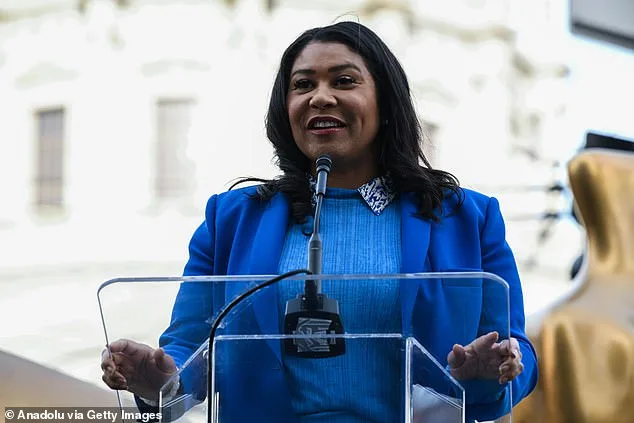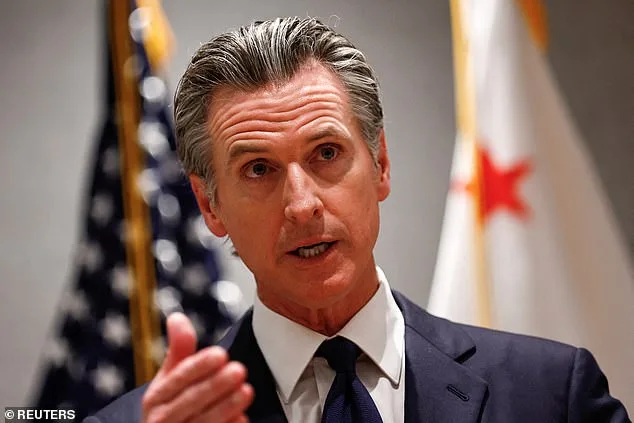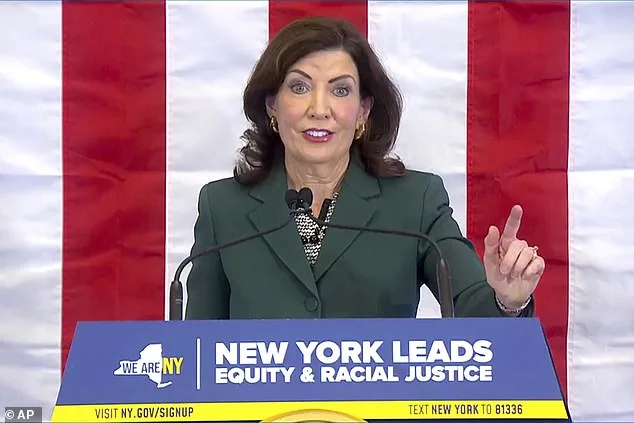- San Francisco Mayor London Breed has quietly withdrawn $4 million in funding for an Office of Reparations in the city
- The move is another setback for California’s reparations movement after Governor Gavin Newsom distanced himself from calls for cash payments
- New York announced its own reparations task force in December to address the state’s ‘painful legacy of slavery’
California‘s reparations movement faces an uncertain future after San Francisco’s mayor scrapped plans for a designated office to explore the issue.
Mayor London Breed has quietly withdrawn $4 million in funding to establish an Office of Reparations as she struggles to fix a massive budget deficit in the city. The decision sparked frustration among campaigners who are pursuing cash payments of up to $5 million for the city’s black residents.
The decision also comes after California Governor Gavin Newsom distanced himself from demands for cash payments – a radical policy recommended by his own state-wide Reparations Task Force, which published a landmark report in June that recommended reparations valued at roughly half-a-trillion dollars.
The Governor was also expected to meet with members of the California Legislative Black Caucus in December to hear their proposals for reparations legislation but it remains unclear whether a discussion has taken place.
Mayor Breed axed funding for an Office of Reparations in December as part of broader cuts to services.


In a letter to department heads, she said: ‘The reductions leave intact basic City services and priorities so we can continue making progress on hiring police officers, expanding shelter beds, advancing behavioral health initiatives, and cleaning up our streets.’
The decision came after the city’s African American Reparations Advisory Committee published a draft plan in March with recommendations including $5 million cash payments. Other proposals included the creation of an Afrocentric K-12 School.
Newsom said earlier this year that reparations is ‘about much more than cash payments’.
A spokesman for Breed also said ‘opening a separate office is not an efficient use of funds’ and told SFGate that ‘the Mayor does not believe we need a new bureaucracy to implement programs to benefit the African American community’.
Shamann Walton, a member of the San Francisco Board of Supervisors, said it was ‘disheartening’, adding: ‘I understand the importance of no cuts to existing programs, but the Black community will continue to pursue justice and equity through reparations here in San Francisco.
‘My hope is that the city’s deficit is eliminated quickly so that we can fund the Office of Reparations and fulfill the commitment made to address the historical injustices and inequities that have persisted for generations for Black San Franciscans.’

The stalled reparations campaigns in California come as other continue with their own programs to explore reparations.
Earlier this month, New York became the third state in the country to create a task force exploring reparations, after Illinois, whose commission is still examining the issue, and California.
New York Governor Kathy Hochul signed legislation on December 19 to establish the state’s commission.
‘Today, we are continuing our efforts to right the wrongs of the past by acknowledging the painful legacy of slavery in New York,’ Hochul said during a signing ceremony at the New York Historical Society in Manhattan.
Governor Hochul signed the legislation six months after state lawmakers passed the bill to examine the extent to which the federal and state government supported the institution of slavery.
A nine-member commission will study the lasting impact of slavery and make non-binding recommendations on reparations.
She said there was a ‘moral obligation’ to address New York’s history of slavery and added: ‘Let’s be clear about what ‘reparations’ means. It doesn’t mean fixing the past — nobody can do this. But it does mean offering more than an apology.’


